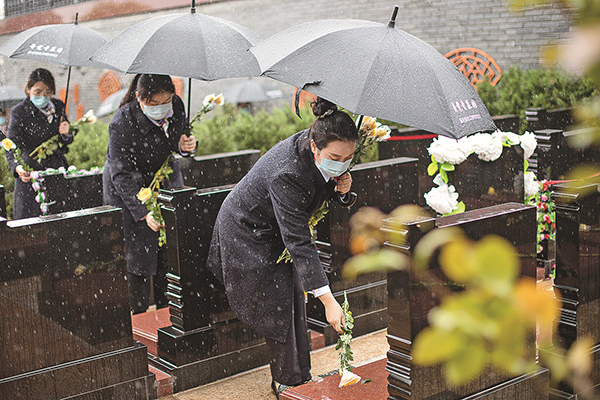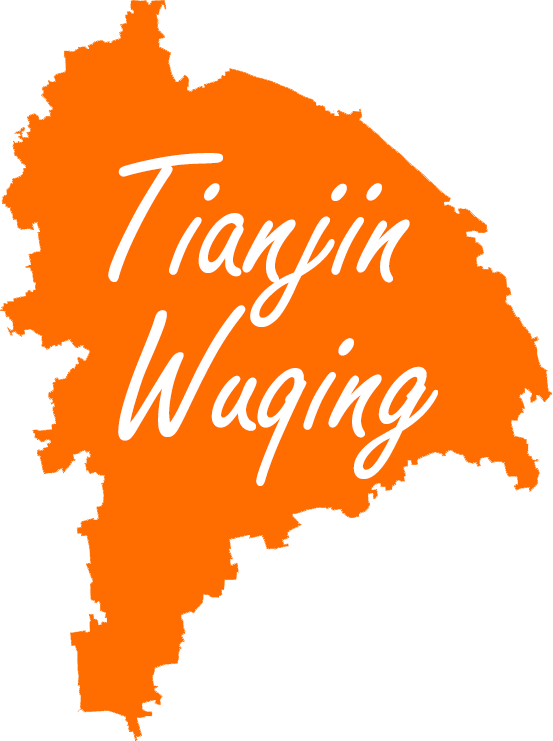
Workers pay respects to the deceased on behalf of their relatives at Pujue Temple Cemetery in Nanjing, Jiangsu province, on Thursday. On-site visits were suspended due to epidemic concerns. [Photo/CHINA NEWS SERVICE]
The Ministry of Civil Affairs has urged local government departments and funeral service providers to adopt epidemic control protocols ahead of Tomb Sweeping Day to ensure people's needs to commemorate their ancestors and deceased loved ones can be satisfied.
Due to the resurgence of COVID-19 cases across the country, the ministry asked service providers at a meeting on Monday to step up efforts to avoid large-scale gatherings and curb infection clusters.
Green awareness, safety and morality in conducting tomb-sweeping activities will be encouraged, it said, adding that graveyards have also been cautioned about managing fire risks.
Tomb Sweeping Day will fall on April 5 this year.
It is a traditional day for Chinese people to visit the graves and tombs of their ancestors and loved ones, and carry out tomb-sweeping and commemorative activities, including burning paper money and other possessions made of paper as a way to pay tribute to them.
Many people travel home for the event, but since the COVID-19 epidemic, travel has been discouraged.
Recently, COVID-19 cases have seen a resurgence across the country, causing stricter epidemic protocols in some regions.
The National Health Commission said the Chinese mainland reported 2,281 new locally transmitted cases with confirmed symptoms on Monday, as well as 2,313 new local asymptomatic cases.
Many cities require people to present a negative nucleic acid test taken in the previous 48 hours before allowing entry.
Beijing requires travelers to present a negative nucleic acid test result taken within 48 hours and a green health code, and travelers are also required to have another nucleic acid test within 72 hours of their arrival. Residents from any county-level region with an infected case in the past 14 days are not allowed to enter the capital.
Beijing residents are also being discouraged from leaving the city without good reason.
Shanghai has asked travelers to present a negative nucleic acid test result taken within 48 hours when entering or leaving the city.
Northeast China's Jilin province has banned travel to other provinces since March 14.
Some regions have even shut down public funeral service venues in accordance with epidemic protocols to prevent mass gatherings.
In Shenzhen, Guangdong province, all funeral service sites have been closed temporarily since March 14.
In Tianjin's Jinnan, Xiqing and Wuqing districts, visits to tombs and graveyards have been discouraged since last week.






